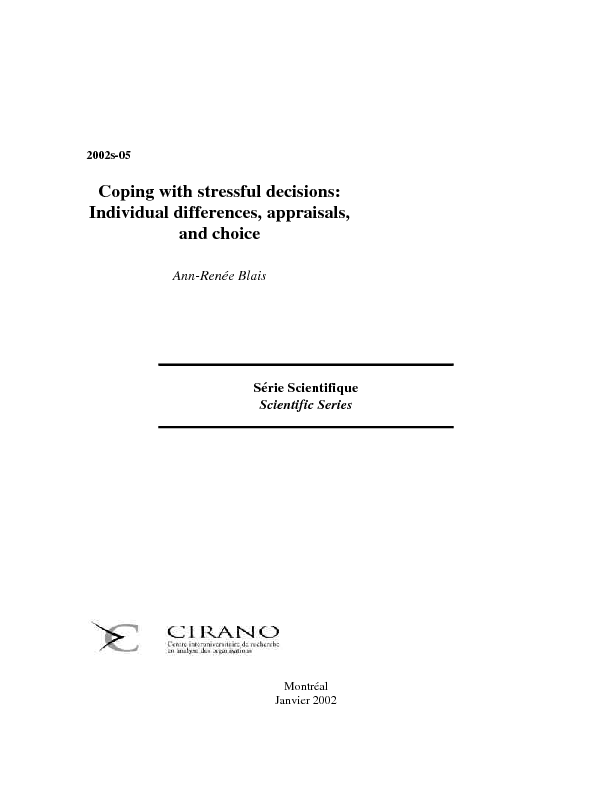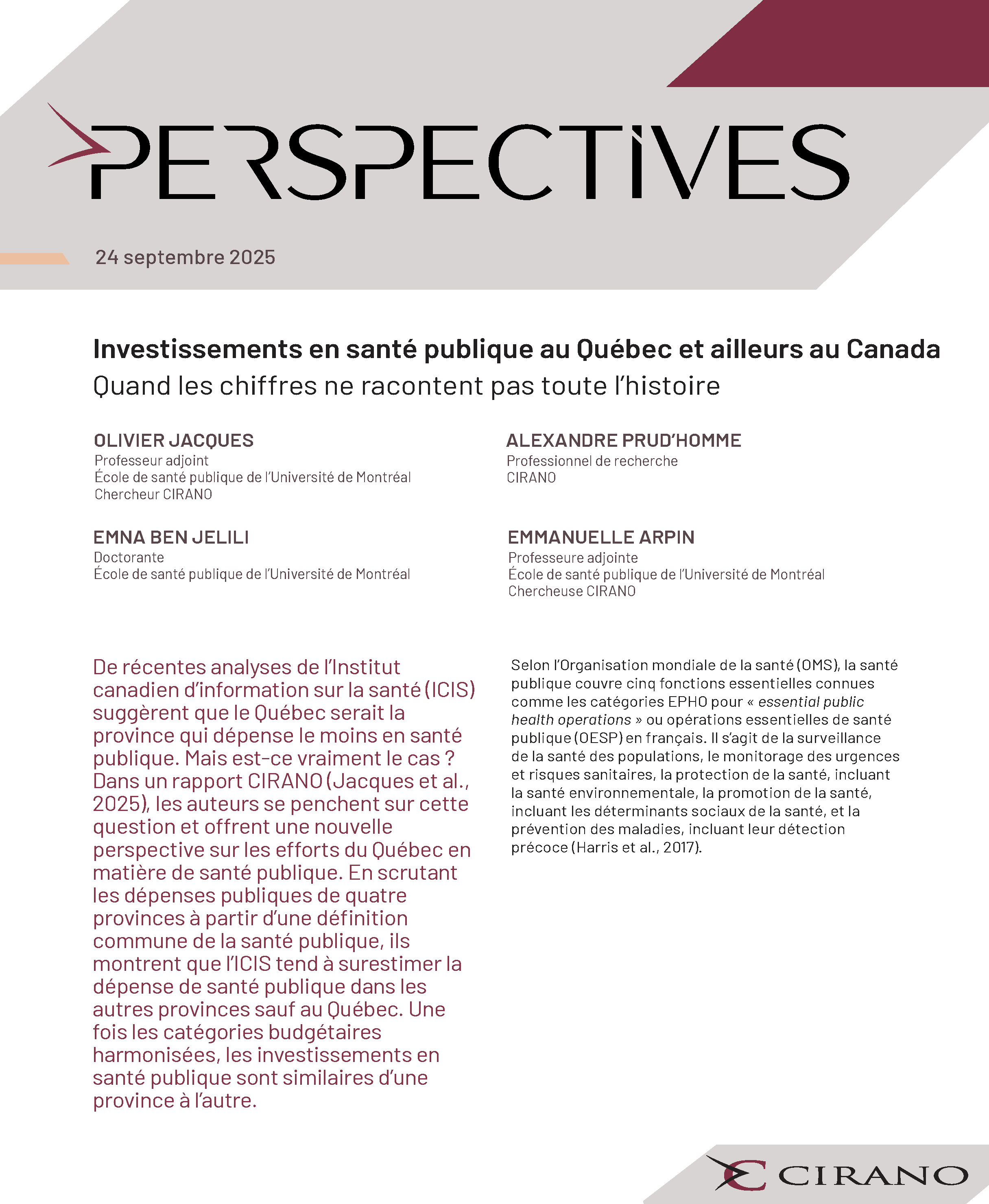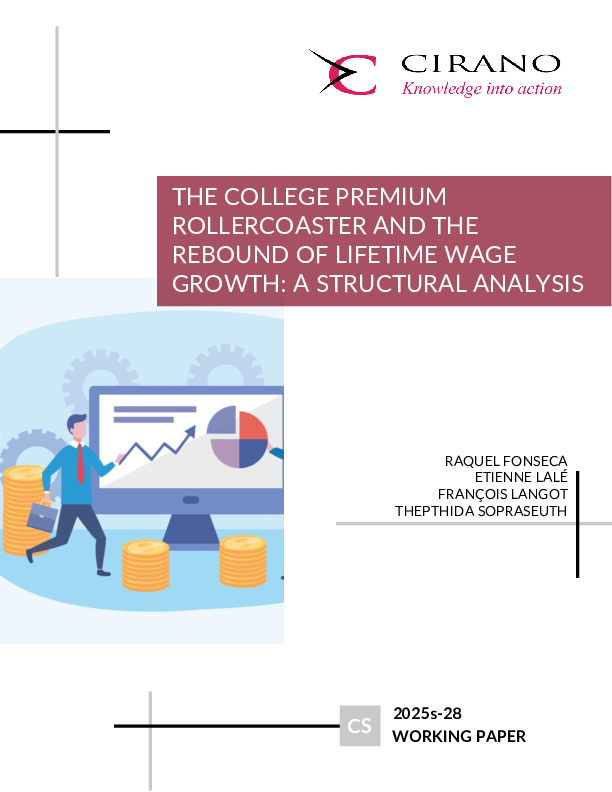Coping with stressful decisions: Individual differences, appraisals, and choice
This study adapts Lazarus and Folkman's (1984) model of stress and coping to describe individual decision processes. This research also investigates the role of situational and person factors in coping and choice processes. In the first phase of the experiment, participants described two stressful decisions they were facing (i.e., a romantic decision and a school-related decision) and completed personality and cognitive style inventories as well as measures of threat, challenge, and self-efficacy appraisals. Three weeks later, the same participants reported how they had dealt with their decisions. They also completed the appraisal measures and described the choice options they would prefer (or had chosen). Results of structural equation modeling reveal that appraisals of self-efficacy influence coping patterns. Furthermore, individual difference measures of positive affect and fear of invalidity were indirectly related to coping via self-efficacy appraisals, and coping patterns and self-efficacy appraisals predicted aspects of the choice. Differences in decision domains qualified some of the relationships among constructs. Overall, the findings show that theories of stress and coping add insight to choices and their surrounding experiences.
[ - ]




